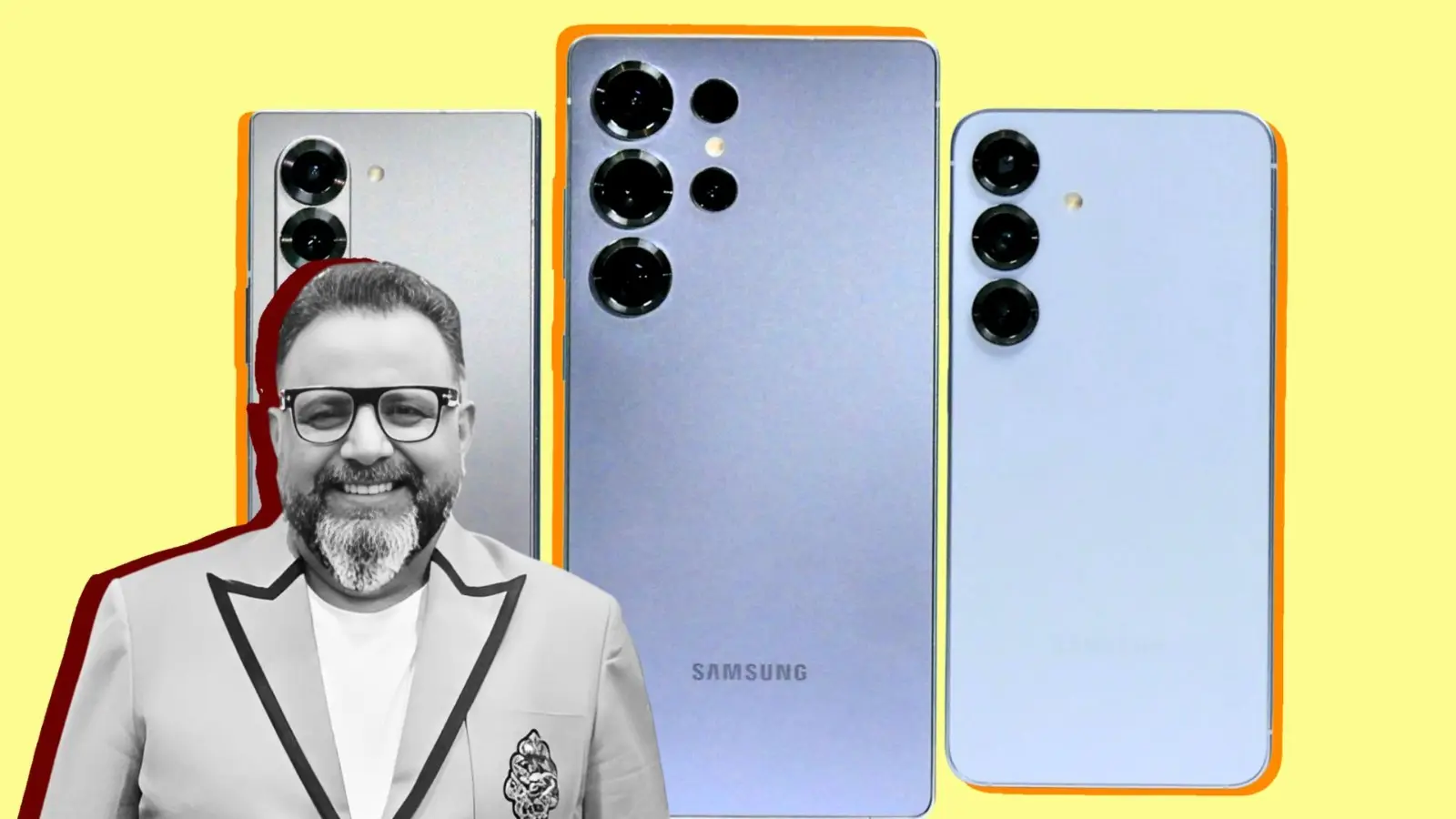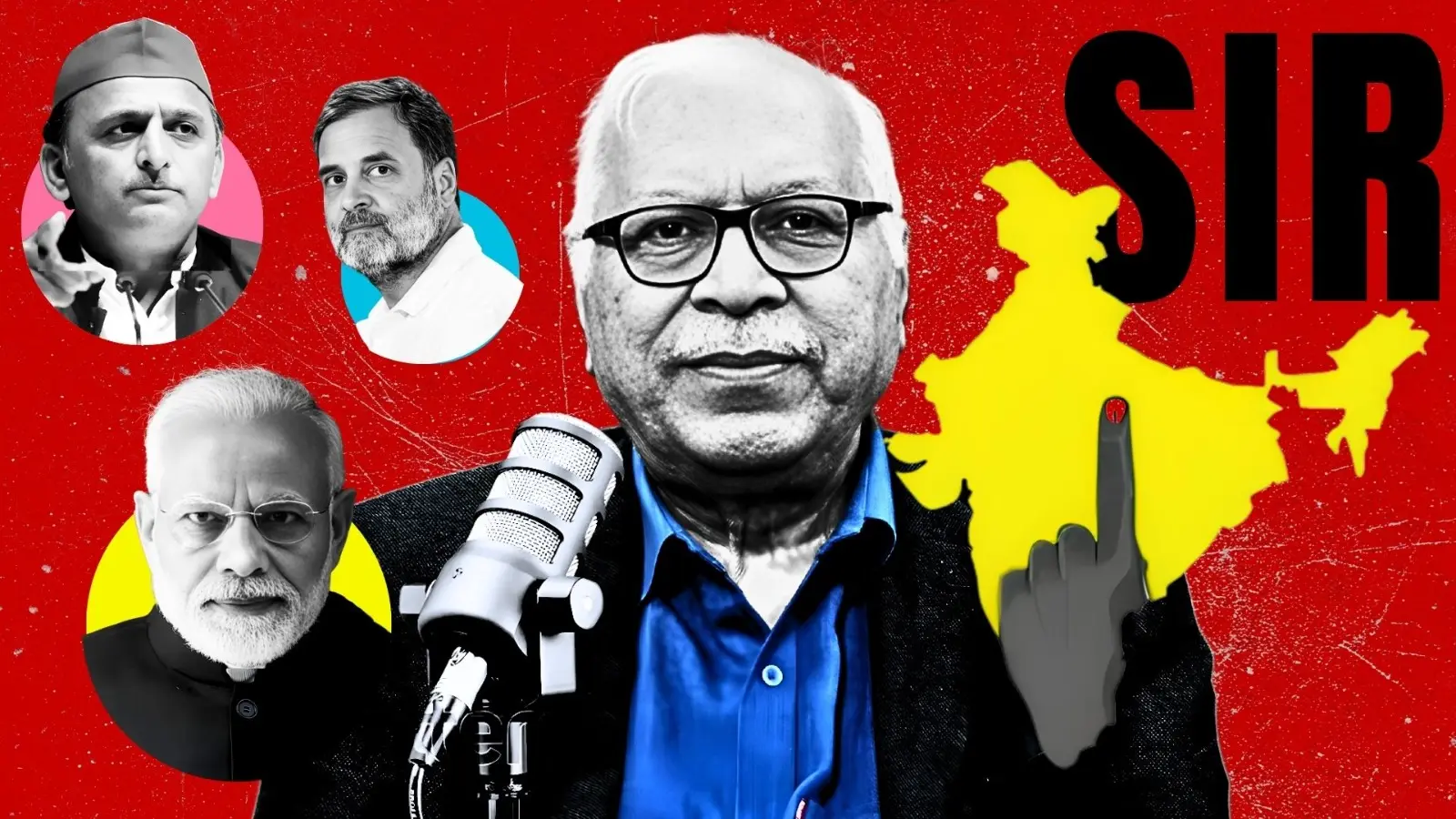Samsung Bets Big on Diverse Portfolio, Galaxy AI And Easy Financing This Festive Season
Story Highlights
Samsung has been on a launch spree recently. Just ahead of the festive season, Samsung unveiled five products: Galaxy A17 5G, Galaxy Tab S11 and S11 Ultra, Galaxy Buds3 FE, and Galaxy S25 FE, to offer customers more options.

Samsung has recently unveiled Galaxy A17 5G, Galaxy Tab S11 and S11 Ultra, Galaxy Buds3 FE, and Galaxy S25 FE,
Samsung India is banking on its diverse portfolio and easy financing for its devices to win the upcoming festive season, while also using Galaxy AI features as the big push to close the deal. The company said its strategy is to democratise AI, make it easy to experience in stores, and make smartphones easy to buy on EMI. Aditya Babbar, Vice President and Head of Product Marketing at Samsung Mobile India, said that smaller cities are adopting new tech faster. “The premiumisation is taking place in Tier-2, Tier-3 much faster.” Alongside that, the buying conversation has changed.
“We normally nowadays don’t see that customer walking in and saying, give me a twenty to thirty thousand rupees phone. Now they say, give me two thousand rupees EMI phone. Which all phones can I buy?” Babbar said the company has “brought it down to Rs. 1,700” a month for AI-enabled phones, pushing flagship-class features within reach, referring to the new Galaxy A17 that could be purchased on a Rs. 1,700 EMI plan.
The same structure is used to push upgrades, as a Rs. 40,000 device on a 24-month plan worked out to roughly Rs. 1,900 a month. For most buyers, paying Rs. 100–200 extra each month feels manageable, while a Rs. 20,000 lump-sum jump does not, Babbar added. Samsung also absorbs part of the interest to keep EMIs low, an extra cost for the company that, in his view, helped more people upgrade to premium phones.
To complement that shift, Babbar said Samsung is offering UPI cashback on the Galaxy A17, something that was usually limited to credit-card deals. The idea was to give the same kind of launch benefit to people who pay by UPI, as UPI users were growing fast in India.
When asked what differentiates Samsung from competitors, Babbar mentioned the brand’s vast portfolio and AI democratisation. “Our biggest differentiator is the assortment and the choices we have.” He pointed to the Galaxy A56 as an example of mid-range hardware that felt premium with metal-and-glass construction in a segment where many phones still used plastic. “We’ve democratised the glass form factor,” he said. At the top end, Samsung claimed the widest premium lineup of Flip, Fold, Ultra, and the base Galaxy S model, so buyers could pick a form factor that suited them.
The entry point in this season’s story, however, is the Galaxy A17, which Babbar called Samsung’s entry-level AI-enabled smartphone. It featured the power of Gemini and Circle to Search, and is “the slimmest, lightest product in that segment.” He also stressed that, for the first time in this price segment, Samsung was bringing cross-app AI.
He also spoke about how AI is changing the use cases for tablets, referring to Samsung’s new Galaxy S11 Tab series: “Very recently, you know, tablet was a consumption device. What we see today after AI, it is becoming a creation device,” he explained. Babbar cited examples of users summarising large PDFs with a single click, which boosted productivity and redefined the tablet’s role.
Looking ahead to the festive season, Babbar was optimistic. “For the festive season, volume will be fairly flattish… value will grow above 5%,” he said, with Samsung targeting faster-than-market growth and “close to double-digit” growth. He believed the value market was poised for significant growth, and Samsung was well-prepared to capitalise on it.
The brand has also invested heavily in its retail network, making 20,000 stores Wi-Fi ready to provide an immersive AI experience where features like Circle to Search, object erase, cleaner video audio, and Instant Slow-Mo can be shown on the spot. It is also training promoters to act as local consultants, explaining the benefits of AI in local languages. “Our education should not be in the language I choose to give you. It is in the language which I choose to buy,” he asserted.
Trending Videos

Dwarka SUV Crash: Sahil's Mother breaks down

Donald Trump Ne Pakistan Ko Bacha Liya?

Egg Freezing ki Sahi Umar kya hai?

Ghaziabad Sisters Case: Did Phone Trigger Suicide? | Podcast

AI Summit 2026: Inside TCS, Google & OpenAI Innovations

Delhi Missing Case: Is Even One Missing Normal?

Pakistan-India Ke Match Me Pakistan Ki Khoob Pitai

Bajrang Dal vs ‘Mohammad Deepak’ | Kiski Galti?

‘Mohammad Deepak’ Controversy: Viral Bajrang Dal Wale Nikle BJP Neta

Pakistan Har Jagah Surrender? India US-Ne Dho Daala

Budget 2026 Ka Khela | STT, Market Crash & Middle Class

Rafale Abhi Zinda Hai, Pakistan Sharminda Hain

India-EU Ki Deal Ho Gayi, Trump Ke Ishaare Par Naachta Reh Gaya Pakistan

Noida Techie De@th: Yuvraj Mehta Ko Kyu Nahi Bachaya Ja Saka? Real Truth | Ground Report


